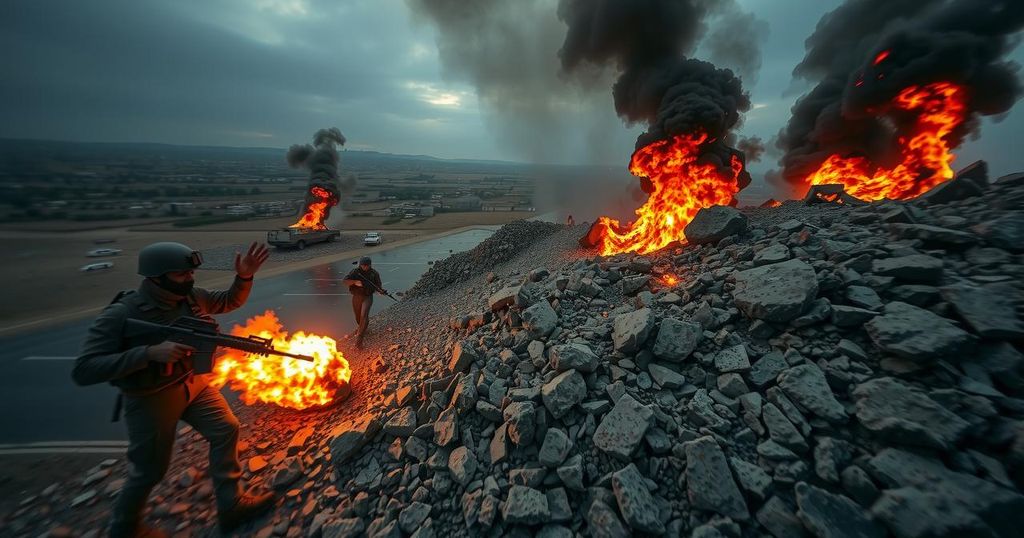The Israeli military escalates operations in Gaza, resulting in 22 Palestinian fatalities amidst forced evacuations. Historical parallels to the 1948 displacement are drawn by local residents, while Israeli officials deny intentions to return settlers. The humanitarian toll is severe, with over 43,500 Palestinian lives lost in the past year and millions displaced.
In a recent escalation of violence in the Gaza Strip, Israeli military actions have resulted in the deaths of at least 22 Palestinians. This increase in hostilities comes as Israeli forces intensify their operations in Beit Hanoun, forcing residents to evacuate under duress. Reports indicate that men were detained for questioning while women and children were permitted to proceed toward Gaza City. These developments have led to perceptions among Palestinians that Israel is creating a buffer zone, a claim that echoes memories of the 1948 displacement. Saed, a resident from Beit Lahiya who arrived in Gaza City, highlighted the tragic parallels between current events and the 1948 catastrophe, stating, “The scenes of the 1948 catastrophe are being repeated. Israel is repeating its massacres, displacement and destruction.” In contrast, Israeli officials assert that there are no plans to re-establish settler presence in the region, with Prime Minister Benjamin Netanyahu emphasizing the commitment to the 2005 withdrawal. Furthermore, military reports from Israel assert that hundreds of Hamas militants have been neutralized during recent offensives, though Hamas and Islamic Jihad claim to have inflicted casualties on Israeli troops. The ongoing conflict has proven resistant to mediation efforts, despite involvement from Arab states and the United States. U.S. Secretary of State Antony Blinken remarked on the achievements of the Israeli military while underscoring the importance of post-conflict planning. The humanitarian toll has been staggering, with Palestinian health officials estimating over 43,500 casualties in Gaza within the past year. Desperate conditions prevail, as more than two million displaced individuals seek refuge amid ruins and widespread shortages of essential supplies. The ongoing situation continues to evoke deep concern regarding both immediate violence and the long-term outcome for the region.
The ongoing conflict in Gaza has seen significant escalation over the past year, particularly following coordinated attacks by Hamas led gunmen on Israeli territory, resulting in a substantial Israeli military response. The region has experienced high levels of violence, leading to severe humanitarian crises and widespread displacement. Historical context, particularly the events surrounding the establishment of Israel in 1948, remains a poignant reference point for Palestinians, contributing to their narratives of dispossession and suffering. Amid international diplomatic efforts, the situation remains precarious and unresolved, with grave implications for both Israeli and Palestinian futures.
In summary, the current military operations in Gaza have led to multiple casualties and exacerbated humanitarian crises, raising serious concerns among the international community. The Israeli military’s narrative contrasts sharply with Palestinian experiences, which evoke the historical traumas of displacement. As the situation continues to evolve, the need for a comprehensive post-conflict plan and humanitarian assistance becomes increasingly critical.
Original Source: www.arabnews.com







